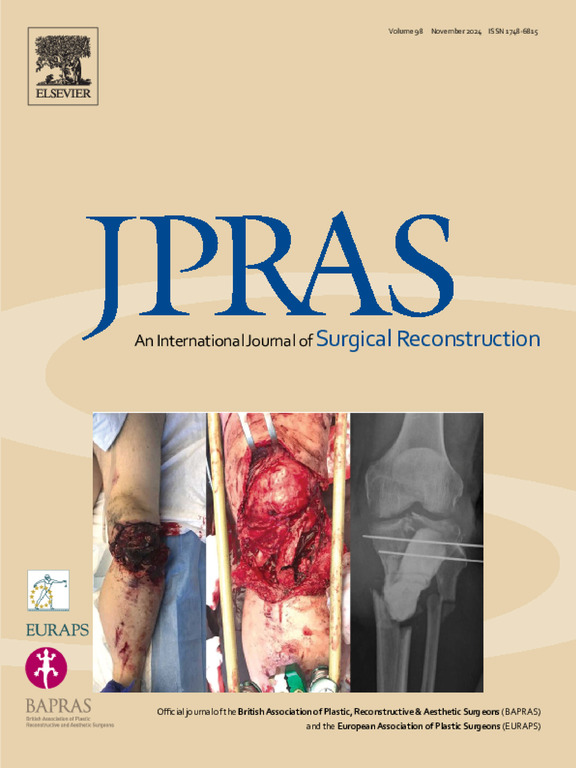The psychosocial outcomes following cosmetic surgery are largely unknown: A systematic review
IF 2
3区 医学
Q2 SURGERY
Journal of Plastic Reconstructive and Aesthetic Surgery
Pub Date : 2025-03-07
DOI:10.1016/j.bjps.2025.03.013
引用次数: 0
Abstract
Introduction
Cosmetic surgery is marketed and widely considered to exert positive psychosocial outcomes, particularly in relation to body image, self-esteem, and mental health. The present systematic review aimed to conduct a timely, up-to-date assessment of the existing academic empirical literature, applying stringent inclusion criteria to summarize only the highest quality of evidence in the field.
Methods
The following databases were systematically searched: EBSCO, Cochrane Library, Scopus, and ProQuest. Screening was completed by two independent reviewers. Prospective studies that utilized a control cohort to examine at least one psychosocial outcome using a validated measure after cosmetic surgery were included. Risk was double assessed using the Effective Public Health Practice Project Quality Assessment Tool.
Results
Seventeen studies met the inclusion criteria. There was considerable heterogeneity across research designs, control groups, measures, and statistical analyses. Overall, the quality of studies was poor. Results suggest short-term improvements in some psychosocial outcomes after cosmetic surgery (particularly in relation to body-area–specific satisfaction, self-esteem, sexual well-being and physical well-being), with limited and inconclusive evidence for outcomes such as mental health, holistic body image, quality of life and social functioning. Very few studies have explored psychosocial outcomes beyond 6-months after the surgery.
Conclusion
Current evidence regarding psychosocial outcomes following cosmetic surgery is weak. There is an urgent need to conduct high-quality research that will require collaboration among surgeons, research psychologists, and methodologists. Recommendations include pre-registration, larger sample sizes, longer follow-up duration, and appropriate control group recruitment. Considering the increasing popularity of cosmetic surgery globally, this field of research should assume priority.
求助全文
约1分钟内获得全文
求助全文
来源期刊
CiteScore
3.10
自引率
11.10%
发文量
578
审稿时长
3.5 months
期刊介绍:
JPRAS An International Journal of Surgical Reconstruction is one of the world''s leading international journals, covering all the reconstructive and aesthetic aspects of plastic surgery.
The journal presents the latest surgical procedures with audit and outcome studies of new and established techniques in plastic surgery including: cleft lip and palate and other heads and neck surgery, hand surgery, lower limb trauma, burns, skin cancer, breast surgery and aesthetic surgery.

 求助内容:
求助内容: 应助结果提醒方式:
应助结果提醒方式:


